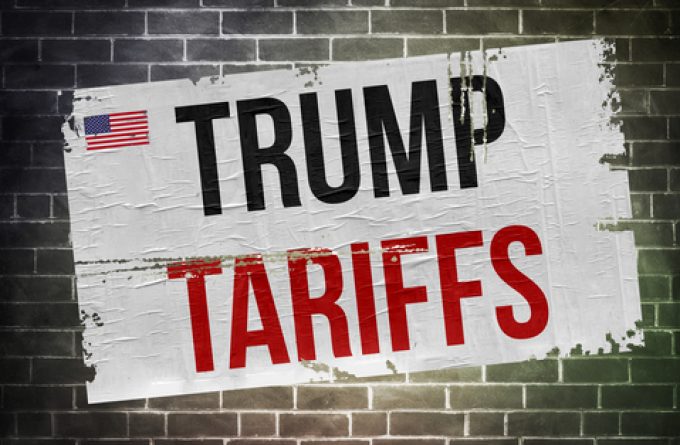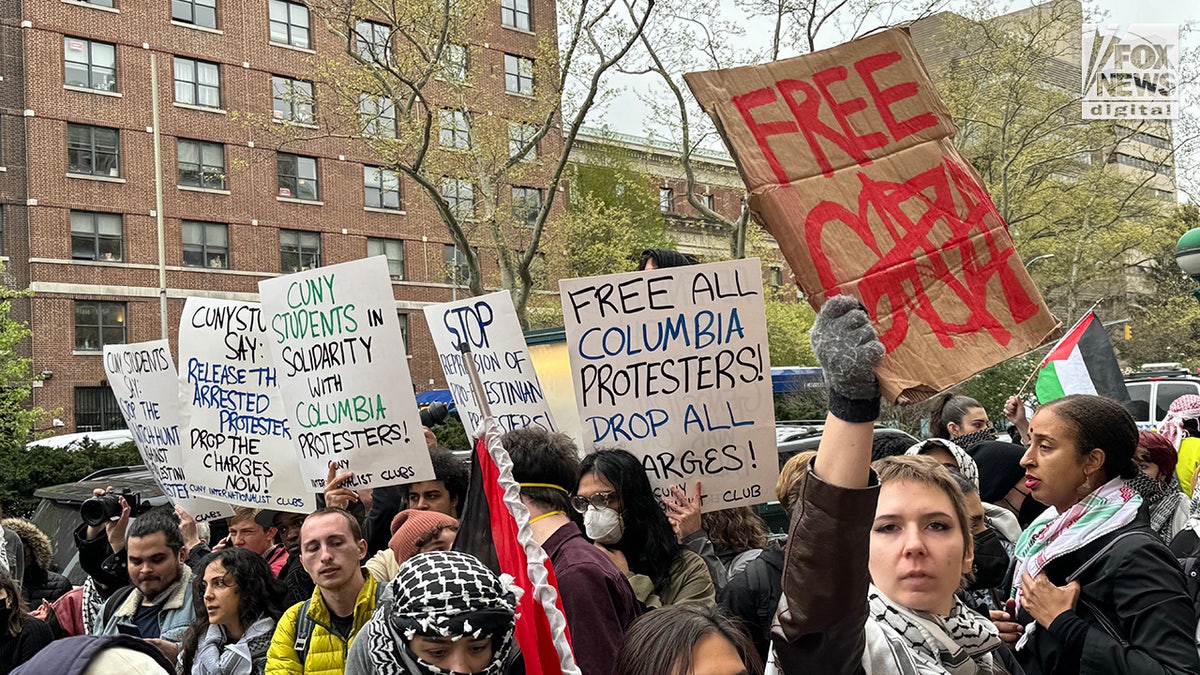The Trump Tariffs: A Strategic Weapon According To Senator Warner

Table of Contents
Senator Warner's Stance on the Trump Tariffs
Senator Mark Warner, a Virginia Democrat, has consistently voiced strong criticism of the Trump administration's tariffs. He hasn't explicitly labeled them solely as a "strategic weapon," but his statements consistently highlight their negative consequences, contrasting sharply with the administration's justifications. His concerns center on the detrimental effects on American businesses and the broader global economy.
-
Quote: While a precise quote directly calling the tariffs a "strategic weapon" is elusive in Senator Warner's public record, his statements frequently emphasize the unintended negative consequences, suggesting a lack of strategic foresight. For example, he has repeatedly highlighted the damage to American farmers and manufacturers caused by retaliatory tariffs imposed by trading partners.
-
Specific Concerns: Senator Warner raised concerns about the impact on specific industries like agriculture and steel, pointing to job losses, increased prices for consumers, and damaged relationships with crucial allies. He also voiced worries about the undermining of international trade institutions and the potential for escalating trade conflicts.
-
Proposed Alternatives: Senator Warner has advocated for a more multilateral approach to trade negotiations, emphasizing diplomacy and collaboration with international partners over unilateral tariff actions. He has consistently championed strategies that prioritize sustainable economic growth without sacrificing international relations.
Economic Impacts of the Trump Tariffs
The economic consequences of the Trump tariffs were multifaceted and far-reaching, triggering a complex debate among economists and policymakers. While the administration aimed to protect domestic industries and jobs, the reality was more nuanced.
-
Impact on Specific Industries: The steel and aluminum industries experienced some short-term gains, but the positive effects were largely offset by retaliatory tariffs imposed by other countries on American exports like soybeans and agricultural products. This led to significant losses for American farmers and a decrease in agricultural exports. The overall "tariff impact" on many industries was negative.
-
Consumer Prices and Inflation: The tariffs contributed to increased prices for various goods, impacting consumers' purchasing power and fueling inflationary pressures. The increased cost of imported goods, combined with retaliatory tariffs, significantly affected the cost of living for many Americans. This factor became a considerable economic consequence of the tariffs.
-
Retaliatory Tariffs and Ripple Effects: Retaliatory tariffs from countries like China and the European Union created a trade war, disrupting global supply chains and negatively impacting numerous sectors. This highlights the interconnectedness of the global economy and the unexpected ripple effects of protectionist trade policies. The "trade war" exacerbated economic uncertainty and hindered global economic growth.
Geopolitical Implications of the Trump Tariffs
The Trump tariffs had profound geopolitical implications, straining relationships with key allies and challenging the existing global trade order.
-
Damage to International Relations: The tariffs severely damaged relationships with long-standing allies like Canada and the European Union, leading to trade disputes and mutual resentment. The imposition of tariffs damaged trust and undermined collaborative efforts on various global issues. The "trade relations" suffered considerably.
-
Impact on Global Trade Organizations: The tariffs challenged the authority and effectiveness of the World Trade Organization (WTO), leading to concerns about the future of multilateral trade agreements. The tariffs' disregard for WTO rules generated uncertainty and instability in the global trading system.
-
Escalation of Trade Wars and Long-Term Consequences: The Trump tariffs contributed to a broader escalation of trade tensions, raising concerns about the potential for prolonged trade wars and their long-term negative consequences for global economic growth and stability. This "geopolitical strategy," if it can be called that, resulted in significant international friction.
Alternative Perspectives on the Trump Tariffs
While Senator Warner and many others criticized the Trump tariffs, some argued they were strategically effective in achieving specific goals.
-
Arguments for Strategic Effectiveness: Proponents claimed that the tariffs successfully protected some domestic industries from unfair competition, particularly in sectors deemed crucial for national security. They argued that the short-term pain was justified by long-term gains in protecting domestic jobs and industries.
-
Arguments for Economic Damage: Critics like Senator Warner argued that the economic damage far outweighed any potential benefits, citing increased prices, job losses in export-oriented industries, and damage to international relationships. They highlighted the negative "economic consequences of tariffs" and lack of sustainable long-term benefits.
Conclusion
The Trump tariffs remain a highly debated topic, with Senator Warner's perspective highlighting the significant negative economic and geopolitical consequences. While proponents argued for strategic benefits, the overwhelming evidence suggests that the tariffs inflicted substantial economic damage and strained international relations. The long-term effects remain to be fully assessed, underscoring the complexity of implementing such sweeping trade policies. Understanding the multifaceted implications of the Trump tariffs is crucial. Continue exploring the debate surrounding the Trump tariffs and their lasting effects on the global economy by researching further and engaging in informed discussions. Learn more about the economic consequences of tariffs and their impact on international trade relations.

Featured Posts
-
 The Impact Of The Monkey Assessing Stephen Kings 2025 Film Adaptations
May 09, 2025
The Impact Of The Monkey Assessing Stephen Kings 2025 Film Adaptations
May 09, 2025 -
 Wynne Evans Denies Wrongdoing Amidst Show Of Support
May 09, 2025
Wynne Evans Denies Wrongdoing Amidst Show Of Support
May 09, 2025 -
 Anchorage Protests Thousands Demonstrate Against Trump Policies Again
May 09, 2025
Anchorage Protests Thousands Demonstrate Against Trump Policies Again
May 09, 2025 -
 Prisao De Mulher Que Afirma Ser Madeleine Mc Cann Detalhes Do Caso
May 09, 2025
Prisao De Mulher Que Afirma Ser Madeleine Mc Cann Detalhes Do Caso
May 09, 2025 -
 Vegas Golden Knights Face Hertl Absence After Lightning Hit
May 09, 2025
Vegas Golden Knights Face Hertl Absence After Lightning Hit
May 09, 2025
Latest Posts
-
 Former Becker Sentencing Judge Heads Nottingham Attacks Investigation
May 09, 2025
Former Becker Sentencing Judge Heads Nottingham Attacks Investigation
May 09, 2025 -
 Retired Judge Deborah Taylor To Lead Nottingham Attacks Inquiry
May 09, 2025
Retired Judge Deborah Taylor To Lead Nottingham Attacks Inquiry
May 09, 2025 -
 Nottingham Attacks Inquiry Retired Judge Appointed
May 09, 2025
Nottingham Attacks Inquiry Retired Judge Appointed
May 09, 2025 -
 Nottingham A And E Records Accessed Illegally Families Of Stabbing Victims Demand Justice
May 09, 2025
Nottingham A And E Records Accessed Illegally Families Of Stabbing Victims Demand Justice
May 09, 2025 -
 Nhs Data Breach In Nottingham Stabbing Victims Families Demand Answers
May 09, 2025
Nhs Data Breach In Nottingham Stabbing Victims Families Demand Answers
May 09, 2025
